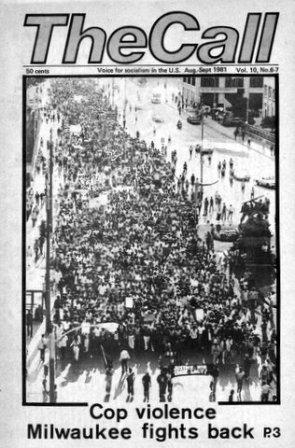
First Published: The Call, Vol. 10, No. 6-7, August-September 1981.
Transcription, Editing and Markup: Paul Saba
Copyright: This work is in the Public Domain under the Creative Commons Common Deed. You can freely copy, distribute and display this work; as well as make derivative and commercial works. Please credit the Encyclopedia of Anti-Revisionism On-Line as your source, include the url to this work, and note any of the transcribers, editors & proofreaders above.
Since there seems to be considerable confusion over what the so-called “right” in the CPML is calling for, I wish to take this opportunity to set down briefly the main elements of this tendency’s point of view. While many share my views, this characterization is strictly my own:
1. The struggle against ultra-leftism is incomplete if confined to mistakes in policy and line. Our errors went to our grasp and understanding of Marxism, not just its application. We substituted the general principles or concepts of Marxism for a realistic grasp of our conditions (e.g., “build class struggle unions”), upheld things as principles which weren’t (e.g., “the theory of continuing the revolution under the dictatorship of the proletariat”), and absolutized and distorted others (e.g., “the vanguard party”). A sober re-examination of Marxism, its history and principles, is necessary, especially in light of serious questions about the struggle against “modern revisionism” and the experience of the Cultural Revolution.
2. We must build an organization very different from the old CPML – a broad, united, democratic American socialist organization – an organization which can become one of workers and not of reconstructed intellectuals. This organization, while able to carry out a unified program of action, must be truly democratic and able to contain within it relatively diverse trends of thought.
3. This new organization must not proclaim its “universal principles” and “lines of demarcation,” but instead should translate Marxism into the conditions and language of the American masses and be capable of building a serious, indigenous socialist movement.
4. The program of this organization must be a concrete, popular and relevant program of struggle which in fact points the way to advancing the immediate as well as long range interests of the masses, and must be comprehensible to the masses themselves.
5. The divisions in the left are a serious obstacle to the development of a serious movement. Efforts must begin to overcome these divisions, not only on the mass level but also on the level of building a Marxist party. While such an effort is protracted, and will not bring the whole revolutionary movement into a single-party, substantial progress is possible over time but requires a different approach to unity than our old lines of demarcation.
6. Our main basis for unity, and the development of meaningful lines of differentiation, should be unity in practice and content, not Marxist phraseology. An initial basis for exploring such unity is agreement on: a Marxist outlook (relatively broadly defined); an activist orientation toward the masses and the class struggle; the finding of an independent, American road to socialism; support for national equality and self-determination, and for women’s equality; and opposition to imperialism, aggression and dominationism, whether of the American or Soviet variety.
Is this general? Yes – necessarily so at stage. In the next period this tendency will be working with others in and out of the organization to flesh out an ideological, political and organizational program for this approach. We welcome those who wish to participate.
Barry Litt,
Los Angeles
Aug. 17, 1981